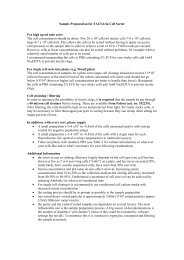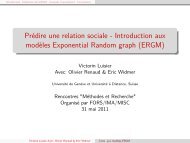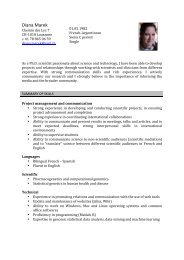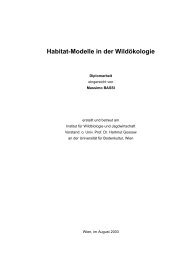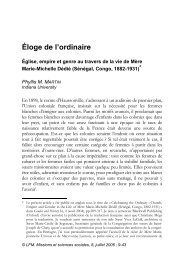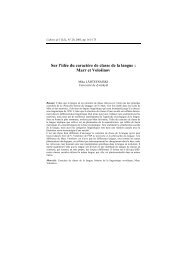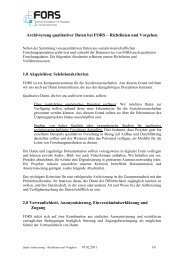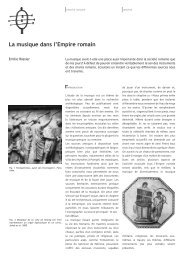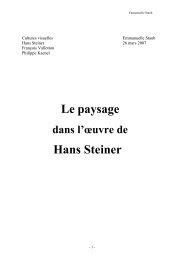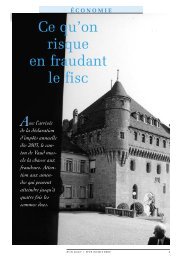conference programme book - European Survey Research ...
conference programme book - European Survey Research ...
conference programme book - European Survey Research ...
Create successful ePaper yourself
Turn your PDF publications into a flip-book with our unique Google optimized e-Paper software.
FRIDAY 22 JULY 179interrupted. The <strong>European</strong> Social <strong>Survey</strong> (ESS) also offers the opportunity to study health inequalies – however,it covers only a short me period since its first round took place as recently as in the year 2002. Canresearchers use data from both programs to create a longer me series?4.9.4 Value change in Eastern Europe: what is happening there and why?M. Comsa 2 , H. Rusu 11 Lucian Blaga University of Sibiu, Romania; 2 Babes-Bolyai University of Cluj Napoca, RomaniaThere are not many comparave studies dedicated to value change in Eastern <strong>European</strong> countries. In ourpaper, we employ both longitudinal and cross- naonal analyses to describe and explore whether and, ifso, how and why Eastern <strong>European</strong> countries have changed their values on the conservasm-openness tochange axis. We considered the support for religiosity, tradional family type, instrumental qualies of work(work ethos) and authority, as value orientaons of a conservave/normave type. Sexual permissiveness,tolerance, orientaons against a non-democrac polical system (democrac orientaons) were regarded asopenness to change values. We are using the available EVS/WVS 1990-2009 data sets from Albania, Belarus,Bosnia-Herzegovina, Bulgaria, Czech Republic, Estonia, East Germany, Hungary, Latvia, Lithuania, Moldavia,Montenegro, Poland, Romania, Russian Federaon, Serbia, Slovakia, Slovenia and Ukraine...4.10 Construcon of Answer Scale Formats in Quesonnaires IVTo be held on July 22, 2011 from: 09:00 to 10:30, in room 412.Coordinated by: Natalja Menold - GESIS - Leibniz Instute for the Social Sciences, Germany4.10.1 The Impact of Direcon and Polarity in Response Scales on Response BehaviorD. Krebs 11 University of Giessen, GermanyAbstractThe applicaon of cognive theory to survey methodology uncovered that answering survey quesons is acognive process consisng basically of four tasks: queson interpretaon, memory retrieval, judgment formaon,and response eding. This paper deals with the laer two tasks in examining the effect of polarity(uni- versus bipolar response scales) within answering categories running either from negave to posive orfrom posive to negave.4.10.2 Choosing the range for a rang scale: an empirical research on the effects of using different scalesD. La Sala 11 Università degli Studi di Firenze , ItalyThe paper concerns some aspects of rang scales used in social research. In parcular, aenon is paid to theinfluence on responses by scales with different ranges.A series of rang scales on different topics (opinions, values, atudes towards legality, democracy, parcipa-on, public policies) were administered to a sample of university students. 7-steps scales (1-7) and 11-stepsscales (0-10) were used for evaluang the same items, by dividing the sample into two comparable sub-groups.The analysis of the distribuon structure of responses in the two sub-groups was conducted by comparingasymmetry, kurtosis, discriminaon capacity of the techniques and by operang a graphical analysis of thedistribuon structure of the responses.4.10.3 Does the direcon of Likert-type scales influence response behavior in web surveys?F. Keusch 11 Instute for Adversing and Markeng <strong>Research</strong>, Vienna University of Economics and Business, Austria



